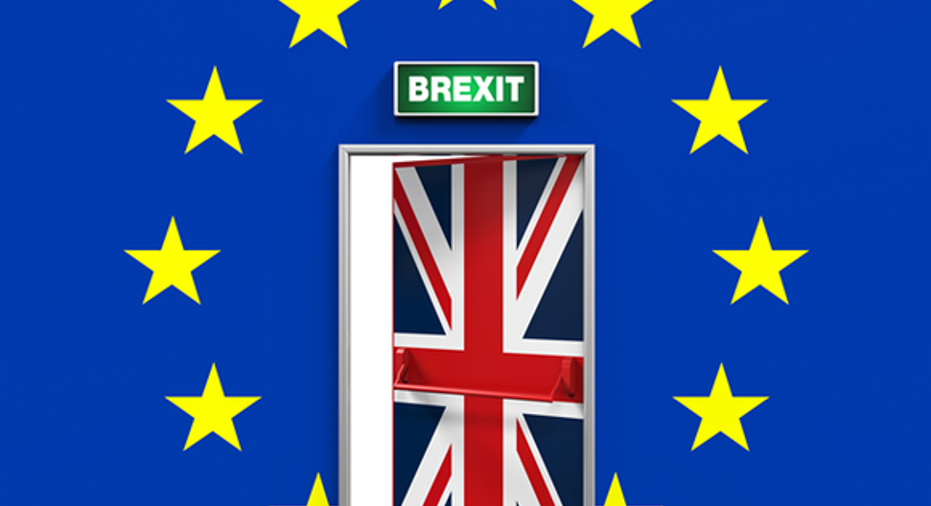Brexit: 3 Things to Keep in Mind About JPMorgan Chase

Image source: iStock/Thinkstock.
With shares of JPMorgan Chase falling by 6.9% on Friday, following the news that the United Kingdom will separate from the European Union, there are three things that investors in the nation's biggest bank (by assets) should keep in mind.
1. A 6.9% drop isn't unusual
The first is that a drop of this magnitude, while rare, is far from unprecedented. Over the last 16 years, JPMorgan Chase's shares have dropped by a larger margin on 41 days.
Most of these days were in and around the financial crisis, but eight of them happened between the years 2000 and 2002. The drop on June 12, 2000 was the largest of all, a plunge of 33.7%.
2. Encouraging stress-test results
As a fortuitous coincidence, investors also learned on Thursday that JPMorgan Chase passed the first stage of this year's stress test: The Federal Reserve believes that the bank has more than enough capital to survive even the severest of economic downturns.
How severe? This year's scenario presupposed, among other things, that the unemployment rate rises to 10%, interest rates turn negative, and stock prices fall by 50%. This is every bit as bad (and then some) as the financial crisis, which was the worst downturn since the Great Depression.
JPMorgan Chase emerged from the Fed's gauntlet with an 8.3% tier 1 common capital ratio, well in excess of its regulatory minimum of 6.25%. This means that it had $31 billion in excess capital, even after the Fed assumed that it would lose $30.5 billion through the hypothetical nine-quarter scenario.
We're still in the immediate wake of the U.K.'s vote in favor of Brexit, and there's little doubt the move will have economic ramifications, but it would be surprising if the situation deteriorated as far as presupposed in the stress test.
While JPMorgan Chase will likely see its earnings drop over the next few quarters, it is well protected by its balance-sheet fortress.
3. A soon-to-be-announced dividend raise?
Even if it seems that right now there's only bad news, a positive catalyst is likely to hit bank stocks next week.
On Wednesday, the Fed releases the results from the second stage of the stress test -- the comprehensive capital analysis and review. This is when investors will learn whether the nation's biggest banks can boost their dividends and/or share buybacks over the next year.
While making predictions is a fool's errand, there's no reason to think that the Fed will block JPMorgan Chase from increasing the amount of capital that the bank returns to shareholders. It has consistently been allowed to over the past five years, and JPMorgan Chase has only grown stronger over this period.
Aside from qualitative concerns with JPMorgan Chase's capital-planning process, which would have most likely sprung up in the first round, the only thing which could act as an impediment in this regard is the bank's already considerable payout ratio -- the percentage of net income it distributes every year via dividends.
The Fed closely scrutinizes dividend increases that will yield a payout ratio in excess of 30%;this is referred to as a soft cap. Beyond this, analysts believe that the Fed places a hard cap at a 40% payout ratio.
JPMorgan Chase comes in between these figures. Its payout ratio last quarter was 32%, according to its latest quarterly financial supplement. Its ratio for all of 2015, meanwhile, was 28%.
But even though JPMorgan Chase is already operating within range of the Fed's soft cap, which will subject further increases to additional scrutiny, this doesn't mean that the bank won't be allowed to boost its quarterly payout. Wells Fargo and U.S. Bancorp have broken the trail in this regard, gaining approval last year to boost their dividends despite entering the comprehensive capital analysis and review with payout ratios above 30%.
Along similar lines, a silver lining to the drop in JPMorgan Chase's share price is that it will be able to repurchase shares at a more reasonable valuation than it otherwise could have. Consequently, assuming that the bank asks for permission to repurchase shares this year -- which it almost certainly will -- that money will go a lot further.
Keep calm and invest on
None of this is to say that JPMorgan Chase won't be impacted by a Brexit: it will be. KBW, an investment bank specializing in the financial services sector, expects JPMorgan Chase's earnings per share to drop as a result by 2.8% this year and by 6.1% next year.
Moreover, as CLSA analyst Mike Mayo wrote in a research note today, the bank generates 15% of its revenue from its EMEA segment (Europe, Middle East, and Africa) and has $50 billion worth of cross-border exposure. It may also have to relocate thousands of London-based employees to the continent.
Underlying all of this, however, is the fact that the $2.4 trillion bank has the greatest banking franchise in the United States, and is led by Jamie Dimon,the greatest banker this country has to offer.
The article Brexit: 3 Things to Keep in Mind About JPMorgan Chase originally appeared on Fool.com.
John Maxfield owns shares of US Bancorp and Wells Fargo. The Motley Fool owns shares of and recommends Wells Fargo. Try any of our Foolish newsletter services free for 30 days. We Fools may not all hold the same opinions, but we all believe that considering a diverse range of insights makes us better investors. The Motley Fool has a disclosure policy.
Copyright 1995 - 2016 The Motley Fool, LLC. All rights reserved. The Motley Fool has a disclosure policy.



















